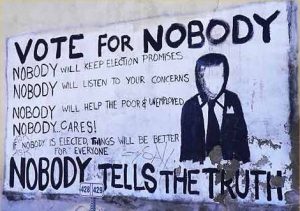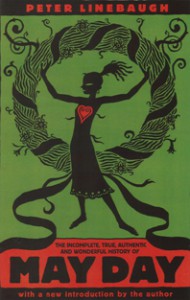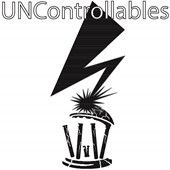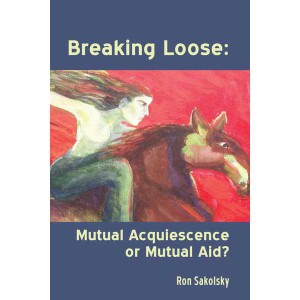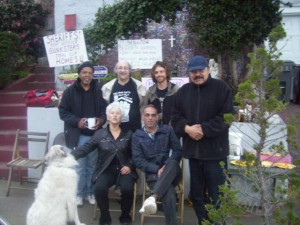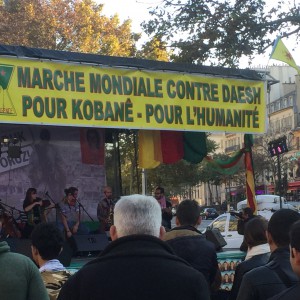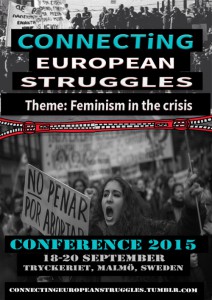Kamua Franklin + Repression in Turkey

This week we feature two interviews in the show
Kamua Franklin on #ungovernable
First, we spoke with Kamau Franklin, who is a radical activist, the political editor for the online publication Atlanta Blackstar, and former attourney based out of Atlanta, GA. We are speaking today about Ungovernable, which is a radical organizing platform rooted in anti state Black and POC autonomy, how it began, its directives and ideals, and how to best move forward in this political moment among many other things.
From their website:
“We pledge to create a resistance movement that makes Trump unable to govern our oppression; unable to deceive the people, to make the people accept his reign of hatred. We refuse to give hatred a chance to govern, a chance to roll back civil and human rights, a chance to deport millions of people, a chance to create camps and registries for Muslims, a chance to expand the prison industrial complex, a chance to expand its drone wars, or a chance to turn back the gains won by our struggles.”
To learn more about Ungovernable, you can visit their website at https://www.ungovernable2017.com/, also you can hit them up on fedbook by searching “Ungovernable 2017 and Beyond”, our guest has also invited people to message him on the FB too, you can do that by searching his name spelled Kamau Franklin.
Repression in Turkey
The second segment is an interview conducted by audio comrades from the Slovenian anarchist radio project called Crna Luknja with a member of the Turkish anarchist group DAF & an editor of their newspaper, Meydan.
As we announced recently on the show, the main editor of Meydan, Hüseyin Civan, has just been sentenced to 15 months in prison in relation to 3 articles in their December 2015 issue dealing with the struggles of Kurdish minorities and the resistance they offer to the Turkish state’s slow genocide.
The conversation was published on January 5th of 2017. Though most of Crna Luknja’s interviews are conducted in Slovenian, they do produce interviews in English when it’s the common language shared with their guests. More content from Crna Luknja can be found here
Announces
First, though a few quick, mostly prisoner announcements:
Sean Swain
Sean Swain, an anarchist prisoner who’s generally got a featured segment on this show and has for 3 years as of this week, has been on hunger strike at Warren Correctional Institution in Ohio since December 26th and has been placed in a suicide cell.
Although details are still murky, we know that Sean has been without food since December 26th. He was charged with extortion of a deputy warden and had begun a disciplinary process when he began his hunger strike and was placed in a suicide cell.
We know that the prison is recognizing his hunger strike and following the associated procedures, which include taking him to the medical unit every day and weighing him and taking his vital signs. It is unclear whether they are attempting to negotiate with him in any way.
Please take a moment to write a letter of encouragement to Sean and to call the following prison administrators and encourage them to negotiate with Sean and help him end this hunger strike as quickly as possible.
Deputy Director of Operations Casey Barr (513) 932-3388 ext. 2005
Warden’s Assistant Greg Kraft (513) 932-3388 ext. 2010
Updates on Sean can be found at http://seanswain.org
Clemency Pushes
There are pushes by the support crews in these last days of the Obama presidency to request clemency or commutations for the sentences of long standing political prisoners here in the U.S. The few that we’ve caught wind of specifically are the following:
Leonard Peltier
Leonard Peltier, an indigenous activist and prisoner in his 70’s is continuing to serve in federal prison as his health declines despite his denial of guilt in the shooting death of 2 fbi agents during the raid on the American Indian Movement’s encampment on the Pine Ridge Reservation in North Dakota in 1975. The case has been hotly debated since it was held, with many contesting the possibility of Peltier’s guilt. Recently, one of his prosecutors from that case said that it was time to let him go due to his age and health. More on his case can be found at http://whoisleonardpeltier.info
Reach out to US AG:
The Honorable Loretta Lynch
Attorney General
U.S. Department of Justice
Comment Line: +1 202 353 1555
Contact form: https://www.justice.gov/doj/webform/your-message-department-justice
Chelsea Manning
Chelsea Manning is a former intel analyst for the U.S. Military who was convicted of sharing documentation of military abuses with Wikileaks and is serving a 35 year sentence. She is also a Trans Woman who transitioned inside of military prison and because of her poor treatment on the inside has been very depressed and attempted suicide. There is hope that in his last days, Obama may commute her sentence for trying to do the right thing and to protect against the increased cruelty of the upcoming regime. Visit chelseamanning.org for details on how to support her
Resisting the Inauguration, J20
An extensive list of anti-inaugural activities are set for January 20th around the Empire. Check out a partial list by finding the post: https://itsgoingdown.org/disruptj20-actions-across-us-trump-regime/
Here in AVL: https://j20asheville.noblogs.org/

